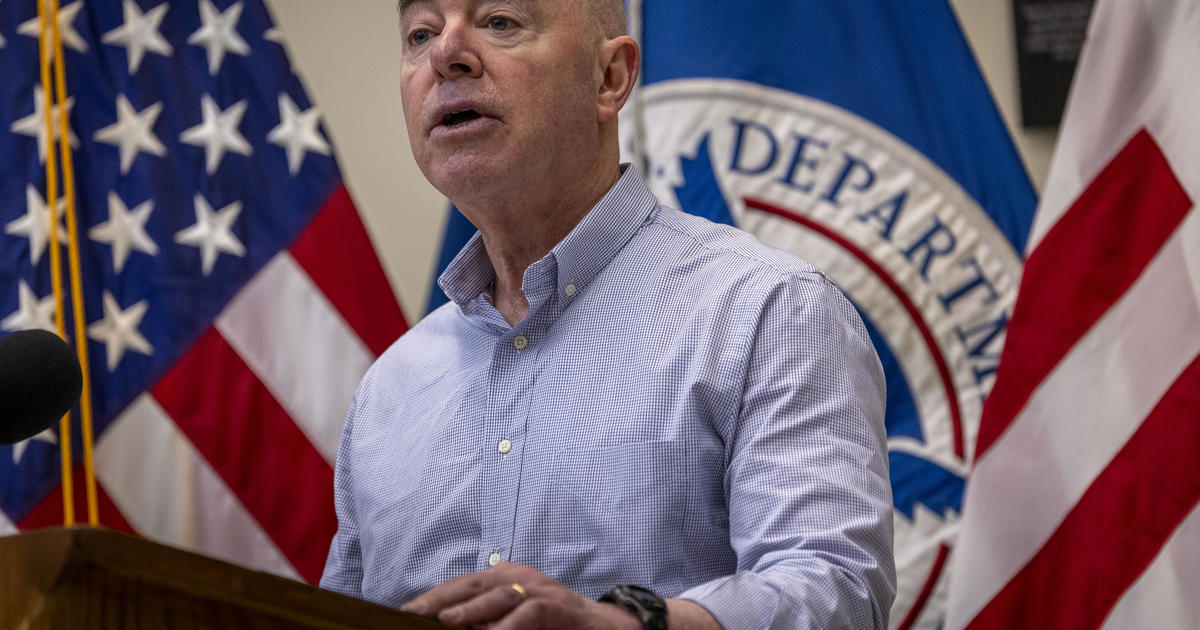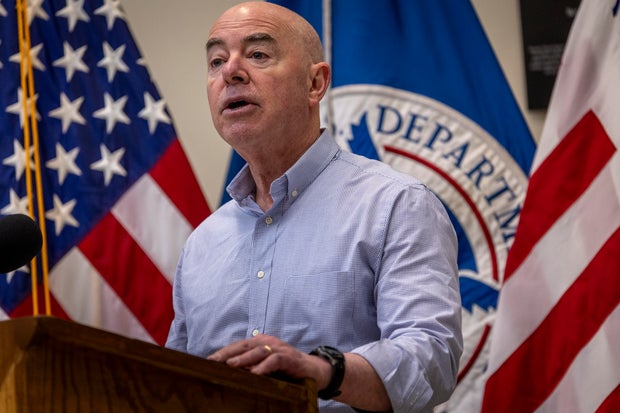Speaker Mike Johnson and the House impeachment managers wrote in a letter to Senate Majority Leader Chuck Schumer on Thursday that they intend to present the Senate with the impeachment articles on Wednesday, April 10, after both chambers return from a two-week break.
“If he cares about the Constitution and ending the devastation caused by Biden’s border catastrophe, Senator Schumer will quickly schedule a full public trial and hear the arguments put forth by our impeachment managers,” Johnson said in a statement.
John Moore/Getty Images
The House voted to impeach Mayorkas last month, the first time a Cabinet secretary has been impeached in nearly 150 years. Now, the upper chamber is compelled by Senate rules to convene as a court of impeachment shortly after the articles are transmitted from the House. But how long the trial lasts in the Democratic-controlled Senate, where the effort is widely seen as a political stunt, is another question.
Johnson announced that the impeachment managers include Reps. Mark Green of Tennessee, Michael McCaul of Texas, Andy Biggs of Arizona and Marjorie Taylor Greene of Georgia, among others.
Why was Mayorkas impeached?
Congressional Republicans have aimed to punish Mayorkas over the Biden administration’s handling of the U.S.-Mexico border. They allege that the secretary has failed to enforce the nation’s laws and detain thousands of migrants, despite pushback from the Department of Homeland Security, Democrats and a small number of Republicans.
The two articles of impeachment accuse Mayorkas of “willful and systemic refusal to comply with the law” and a “breach of public trust.” Last month, the House voted narrowly to impeach Mayorkas under the articles, in a vote that came after an initial attempt failed.
What is the Senate’s role in the impeachment process?
Impeachment is only the first step toward removing an official from office. While the House has the “sole Power” of impeachment under the Constitution, the Senate has the authority to hold a trial, which could result in removal from office. But what that trial looks like is largely up to the Senate itself.
Senate rules suggest that once the House transmits the articles of impeachment to the upper chamber, the chamber must schedule a trial to begin the next legislative day. But once the Senate has convened, everything is decided by a majority. Democrats and Democratic-leaning independents control 51 seats, meaning they could vote on a number of different paths forward that could speed up, delay or dismiss the impeachment outright, if they remain united.

